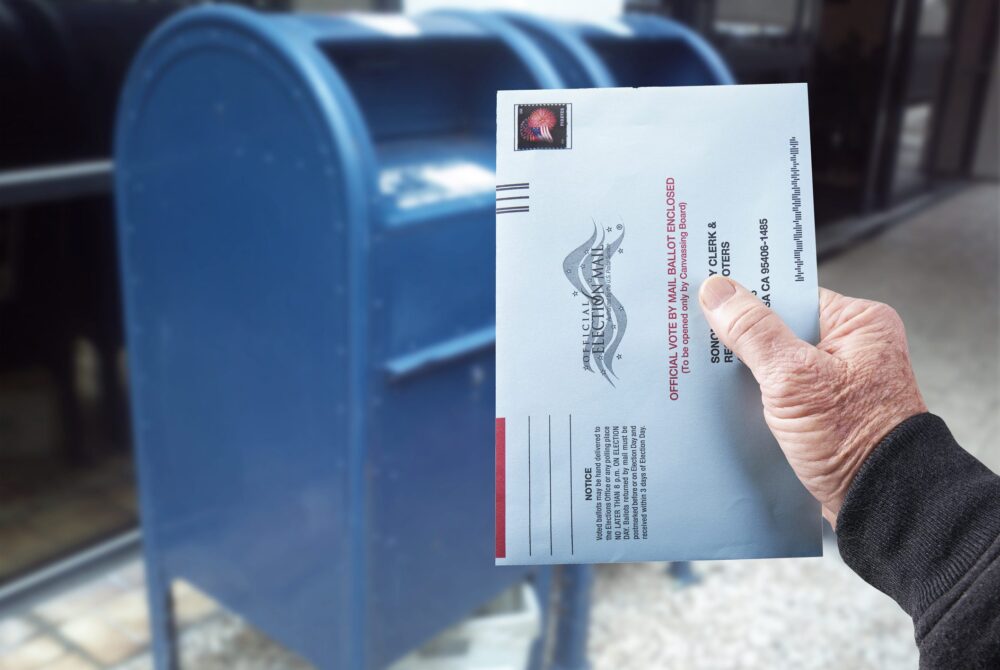County officials across the state are reporting a rising number of rejected mail-in ballot applications. That rise is allegedly due to recent requirements ushered in by Senate Bill 1 (SB 1). The Texas Legislature approved SB 1 during a special session last September, implementing changes to the election process and the information required on a mail-in ballot application.
SB 1 created an additional requirement for people who wish to vote by mail. Vote-by-mail applicants must include proof of identification via either their driver’s license number or Social Security number on both their application and their actual ballot. Before SB 1, voters did not need to provide any proof of identification. The information that voters provide must now match their initial voter registration data, or their application can potentially be rejected.
Bexar County Elections Administrator Jacquelyn Callanen told Texas Public Radio that 42 of the 80 vote-by-mail applications that her office received were rejected.
In Travis County, the elections clerk said that up until last week, they had “rejected about fifty percent of applications for ballot-by-mail that have been received for the March 1, 2022, primary election.”
According to Harris County Elections Administrator Isabel Longoria, of the 1,276 mail-in ballot applications received in Harris County to date, 208, or 16%, have been rejected, an increase from 2018 when only 4,979 applications were denied out of 78,745 (about 6%).
“It’s making the process not only more difficult to follow along; but, people are scared to put perhaps their voter information–their driver’s license (number), their Social Security number–to have it mailed around,” Longoria told Houston Public Media.
“Senate Bill 1, as predicted by election officials, is making it harder for voters to apply to vote by mail,” she added.
Others disagree that the additional requirements make it too difficult to vote, and commend the policy for minimizing the chances of fraudulent voting.
“I think the application requirements are necessary and good to help weed out potential fraud. Will it stop all fraud, only time will tell, but do I think it in some way hinders Americans’ right to vote, absolutely not. Additionally, if folks can stand in line for hours to get a COVID test or shot they can wait in line to vote,” said Benji Gershon, founder and president of Dallas Jewish Conservatives.
In response to the rising rejections, the Texas Secretary of State’s office, which oversees state elections, released a January 14 statement asking election administrators “to seek advice and assistance on the correct method of processing mail ballot applications.”
The statement singles out Travis County specifically, saying the county “made the decision to reject these mail ballot applications before contacting [their] office” and calling for the rejected ballots to be re-examined for eligibility reinstatement.
Election officials are still hoping there is enough time to educate voters on the changes to the vote-by-mail process.
In Hidalgo County, 64 out of the 77 vote-by-mail applications have been rejected so far. However, Hidalgo County’s Elections Analyst Sal Hernandez said that most rejections were due to voters using an outdated form.
“People are not fully aware of it even though it’s on the website,” he said. “We have sent them new applications.”
In El Paso, 23 of the 103 applications for mail-in ballots have been rejected, eleven (roughly 10%) of which were denied for failing to meet the state’s new identification requirements. Mail-in ballots can also be dismissed for failing to indicate a party affiliation, submitting the incorrect form, or lacking other information.
“Anytime you do anything like this and ask for more information without a lot of notice or information being given out to the public, you’re going to have issues like this,” said El Paso County Elections Administrator Lisa Wise. “We’re just trying to make sure we can turn around the notifications as soon as possible to let voters know [about the changes].”

